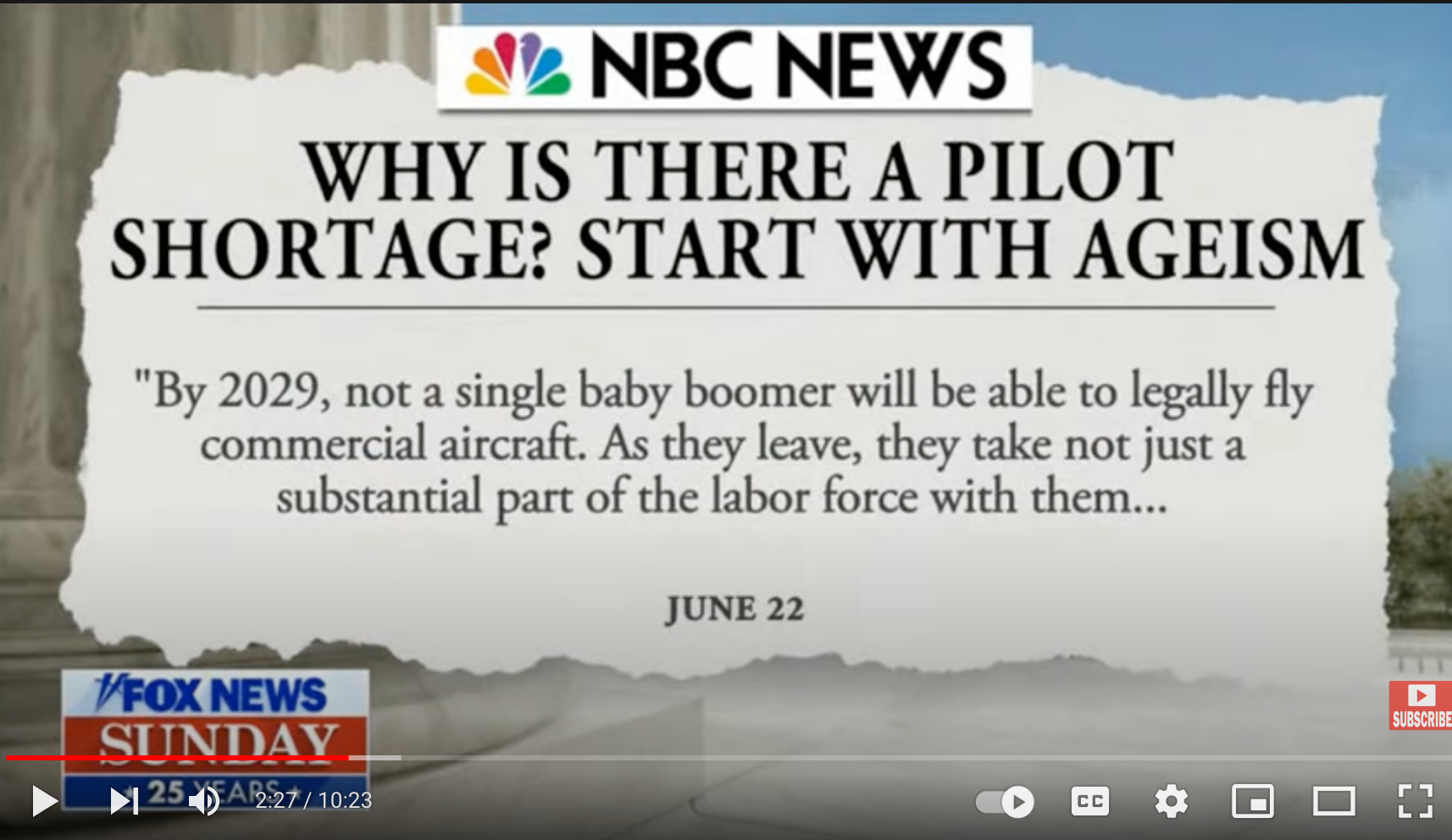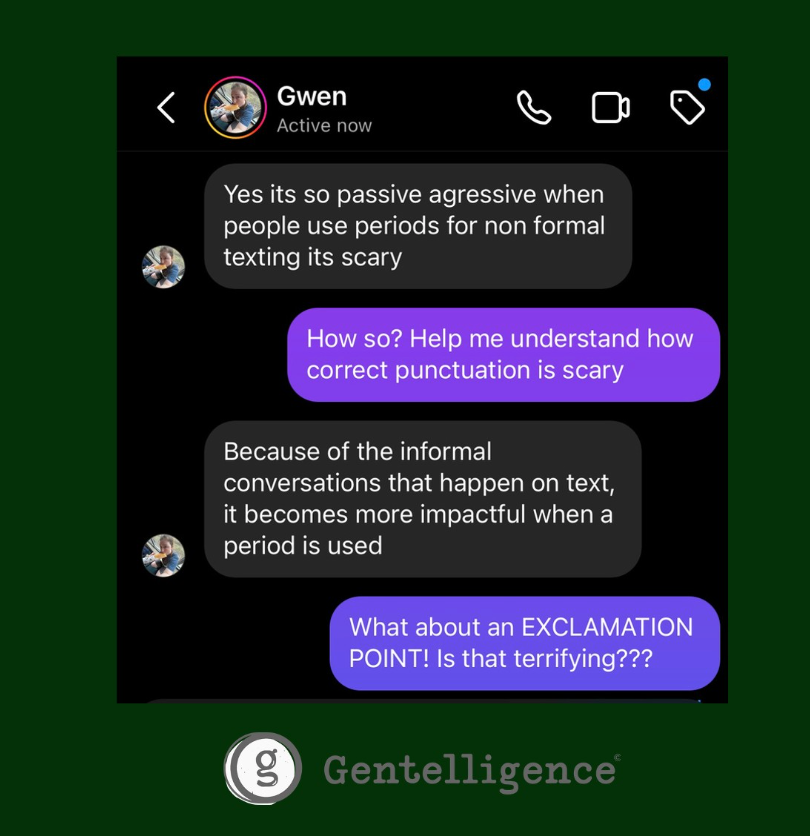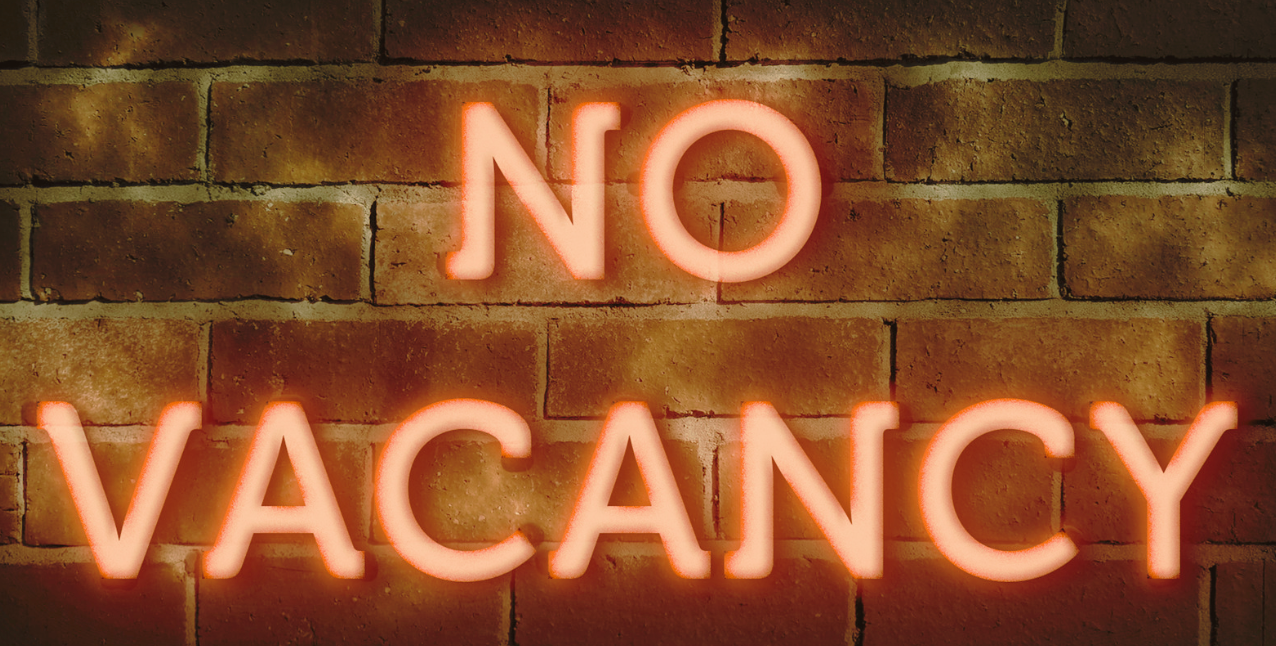Pete Buttigieg, Pilots, and the Continuing Myth of the Zero-Sum Age Game
In case I wasn’t clear the first time, I am not in favor of raising the mandatory retirement age for pilots to 67. I am in favor of not having a mandatory retirement age at all because that is ageist.
Apparently, this conversation on mandatory retirement age for pilots is far from over. Usually, I dig into age-related challenges in a particular industry, view them through a Gentelligence lens, and try to raise important questions for consideration. That’s what I tried to do a few weeks ago when the role of mandatory retirement in the pilot shortage was in the news, with the thought that I would weigh in and then move on to other industries and other questions. But the calls keep coming in on this one, and it seems important to keep the conversation going.
Pete Buttigieg & the Zero Sum Game

On July 11, Fox News shared an excerpt from my recent NBC piece during an interview with Transportation Secretary Pete Buttigieg. The host raised the question about the wisdom of the mandatory retirement age of 65 for commercial pilots, a rule that would result in no Baby Boomers being eligible to fly by 2029. Buttigieg responded, “The answer is not to keep the baby boomer generation in the cockpit indefinitely. The answer is to make sure that we have as many and as good pilots ready to take their place to have a stronger pipeline.”
And here, friends, is where we see the Myth of the Zero Sum Game in its’ full glory.
Allow me to define a zero-sum game: “A situation in which one person or group can win something only by causing another person or group to lose”.
A false dichotomy is being presented here: that either we allow pilots over the age of 65 (who yes, have passed their health checks) continue to fly, OR we invest in the development of the “new generation” of pilots. This doesn’t have to be an either-or situation. The problem is that it is being presented that way, and creating the illusion that there are just these two choices.
Happy 65th Birthday, Pilots!
The goal of Gentelligence® (and, I hope, the airline industry) would be to fully engage our talent across all generations, providing the training and opportunities needed to welcome younger people into the profession but not kicking pilots with decades of valuable experience out of the plane on their 65th birthday because of mandatory retirement age.
Why are these things being seen as mutually exclusive? A past student of mine sent me this Instagram video recently, showing the clear “us vs, them” mindset that is driving this tension.
Research (and interviews with the many pilots that have called me after this story) reveals that the way opportunities are given in the airline industry is based on seniority. According to ATP Flight School, “Seniority is everything as an airline pilot.” The Aircraft Owners and Pilots Association Foundation concurs: “You’ve probably heard the saying, “seniority is everything.” Well, in the airline piloting business, that’s absolutely correct.” For an industry that puts so much value on seniority over all else, it seems quite odd that this reverence for experience abruptly ends at 65, full stop.
If the System is Broken…Fix It
Therefore, the perception is that if older pilots continue to fly, they somehow stand in the way of younger ones being able to get the training hours they need and better routes they crave. If the way opportunities are granted creates the perception that it pits older against younger, then it’s the process that is the problem. A system that always prioritizes more senior people is also potentially ageist, just in the other direction.
However, based on my interviews with a number of pilots, it’s not quite that simple. Older pilots have shared that there are plenty of routes and opportunities to go around, especially with so many planes grounded at the moment because there is no one qualified to fly them. It’s also important to note that “seniority”, while correlated with age, is also not specifically about age, but rather your tenure with a specific airline. Things like mergers and the age at which you began with the airline can mean that younger people can (occasionally) have seniority over older pilots.
The solution to a dysfunctional process isn’t to force people to retire based on an arbitrary age to create more opportunities for younger people. And it’s not to deny needed opportunities to younger people to retain the older ones. The answer is somewhere in the middle, in a mutually beneficial approach that balances these needs and interests.
This is the goal Gentelligence Practice #4: Expand the Pie. Can younger pilots win without older ones losing, or vice versa? What would that look like, and why aren’t we focusing on that as a solution?
I would argue this is not unique to the aviation industry. Other industries have found ways to both create opportunities for their younger professionals while retaining and engaging their older ones without a mandatory retirement age.
Remember, you can count on one hand the jobs that still are clinging to the mandatory retirement age: air traffic control. Commercial pilots. The military. Some federal judges (but not the Supreme Court), and some CPAs, depending on the firm. (Let me know if I’ve missed any, as I am putting together a chapter on this for my new book).
Every industry must balance this reality and find solutions that aren’t ageist, either in favor of older or younger people.
What solutions have worked in other fields, and how can we use them to move this discussion in a more Gentelligent direction?













